Mozzarella, Fast and Slow
"I just need to finish building this helicopter, and then I can make cheese."
We've been working on mozzarella for the last week, following the recipes in David Asher's The Art of Natural Cheesemaking.
Or, I should say, we have mostly been following the recipes. Our first mozzarella attempt was last Monday, and it was our first cheese fail. "Fast mozzarella" is cooked and ready to stretch in about an hour, and it has a very mild, sweet milky flavor because it has not fermented at all. But we didn't learn what it tastes like last Monday because the curd never set in our cheese pot.
Luckily for me (and probably unfortunately for him), David Asher has proven to be the kindest, most supportive cookbook author ever. Last Monday, because we were in the middle of an email conversation about his slow mozzarella recipe, I told him about our fast mozzarella fail. He very gently asked whether I had forgotten to add the rennet. I hadn't, as you can see from this photo (also, I should have used a spoon, not a whisk), so the failure remained mysterious until yesterday when I remembered that I had used tap water to dilute the rennet. I also recalled that at the time, Wyatt had asked me why I wasn't using bottled water, like I had the other times we made cheese (and as David says in his book to use). I had told Wyatt it probably didn't matter whether we used tap water with the fast mozzarella because there was no kefir culture in the fast mozzarella recipe. I was so wrong. A little research yesterday proved that chlorine in water makes rennet ineffective, and while I have been unable to confirm whether whether chloramine (which is in our tap water) has the same effect, I'm pretty sure that it must.
We tried the fast mozzarella again on Thursday, with improved results. But the curd stayed pretty soft. That time, I had used the remaining tiny bit of a bottle of water and topped off the quarter cup I needed for rennet dilution with tap water. Even though our finished cheese slumped, we had decent success and a huge amount of fun stretching the cheese into crazy string cheese shapes.
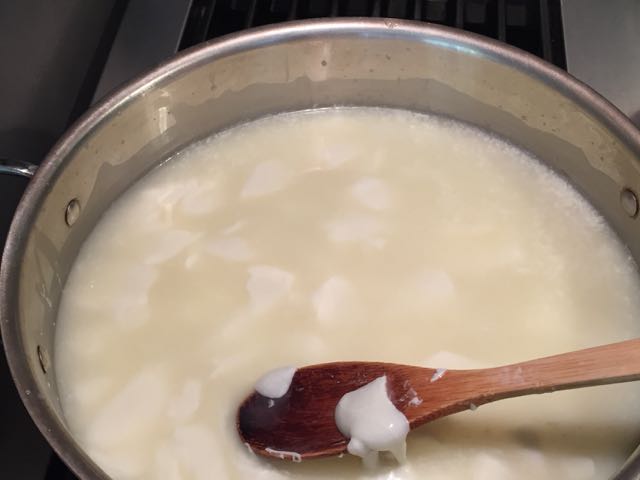
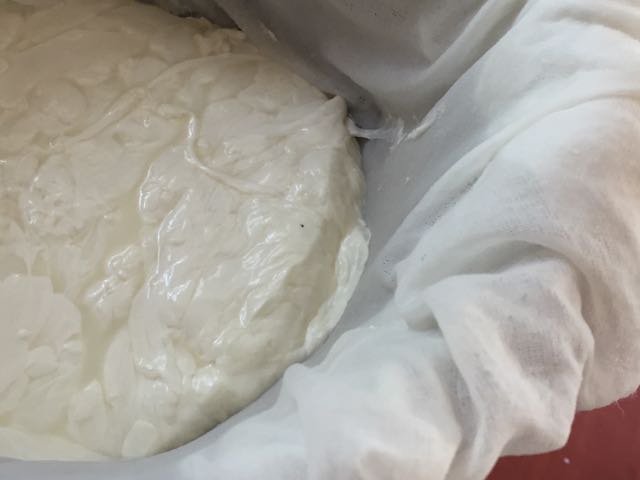
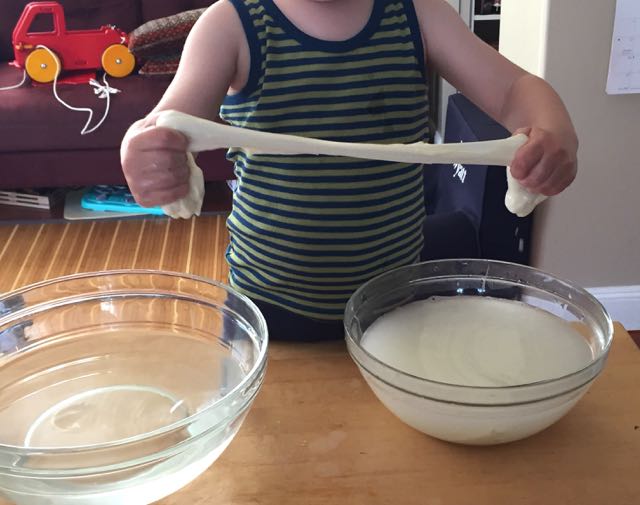
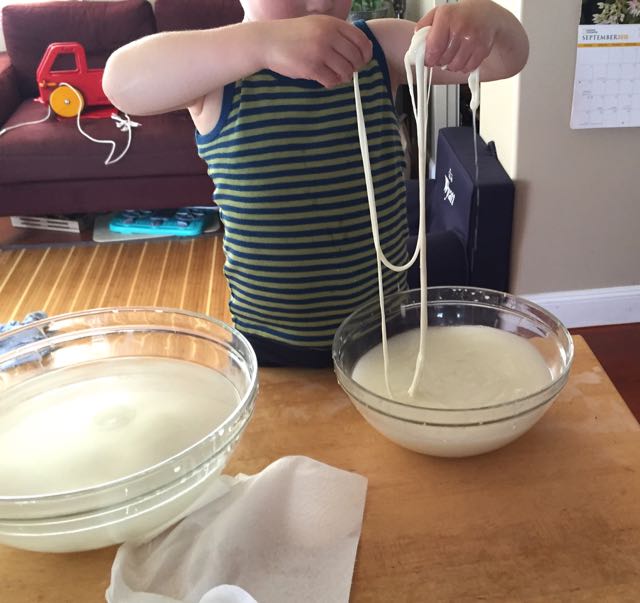
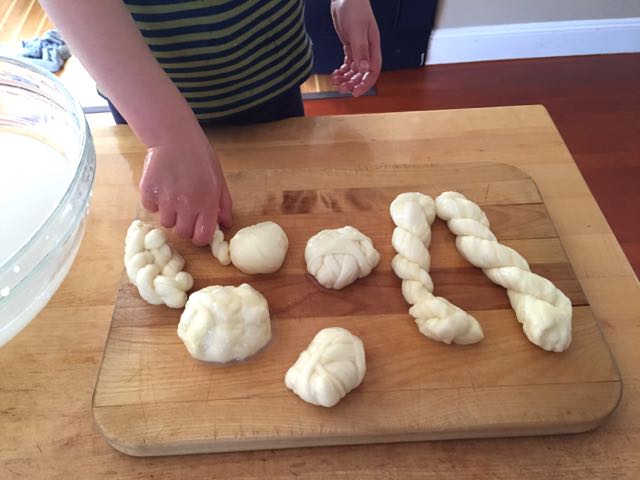
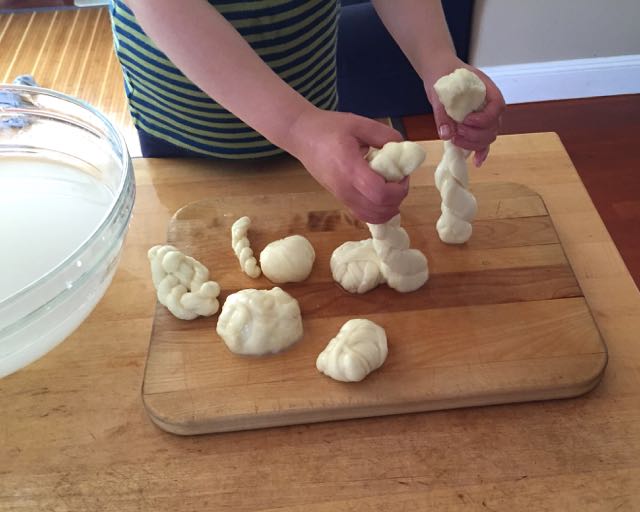
Our next recipe to try was slow mozzarella. This was the recipe I had emailed David about initially, because the recipe states it takes between 8-12 hours to complete, and you have to test the curd for stretchiness every hour. There was no way Wyatt and I would be able to hang with this project for 12 hours. If it took the full 12 hours, Wyatt would be in bed by the time the fun of stretching came along. And paying attention to cheese every hour for 12 hours, not knowing when we'd have to stretch it, was too much uncertainty. Fortunately, David had a suggestion. He said we could prepare the cheese, ferment it in its whey in the refrigerator for 24 hours, and then knead, stretch and shape it. That plan was totally doable.
Because we wanted the cheese to be ready to stretch around 2:30 or 3:00 pm on Monday, we needed to get it into the refrigerator by Sunday afternoon around the same time. And because the rest of the process would take about 4 hours, we would have to start the cheese around 10:00 am on Sunday. So that's what we did, and it worked perfectly.

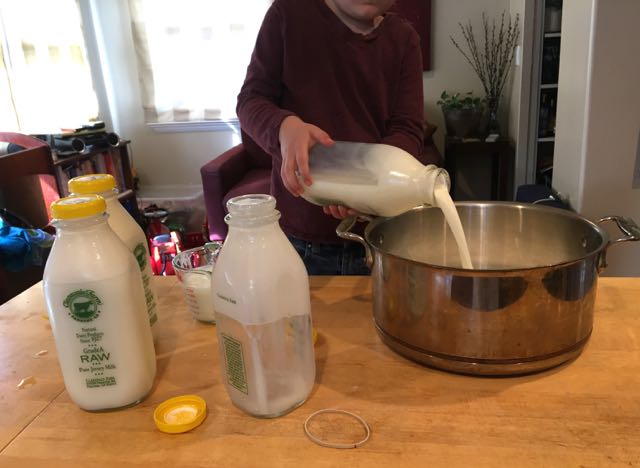
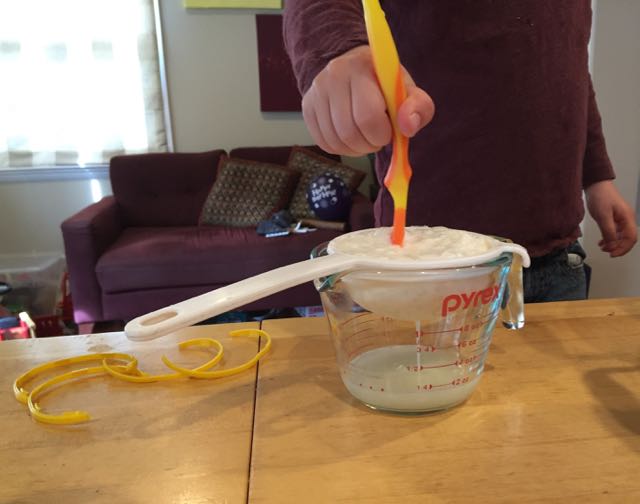
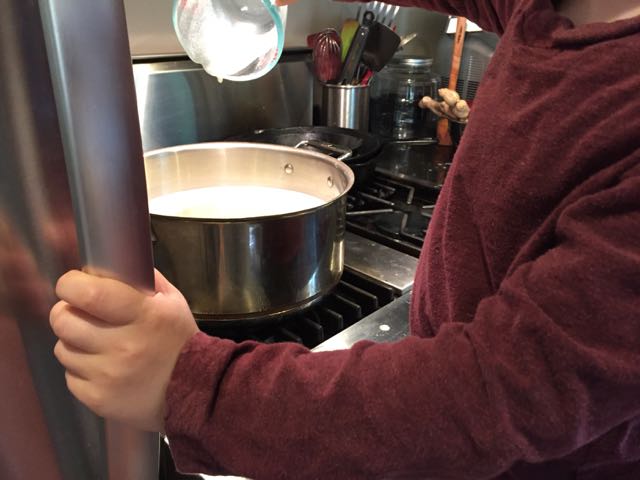
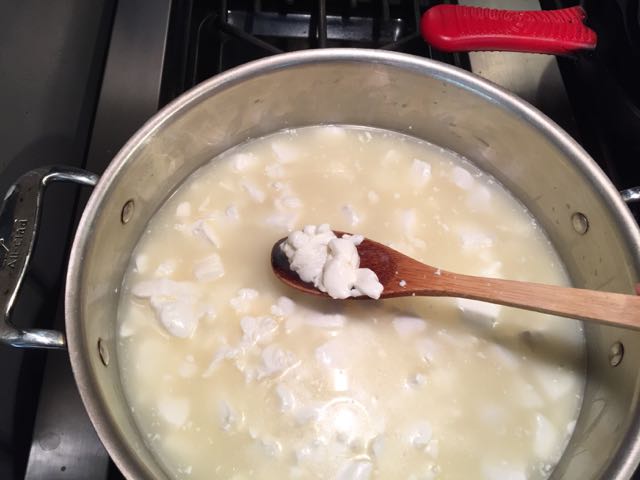
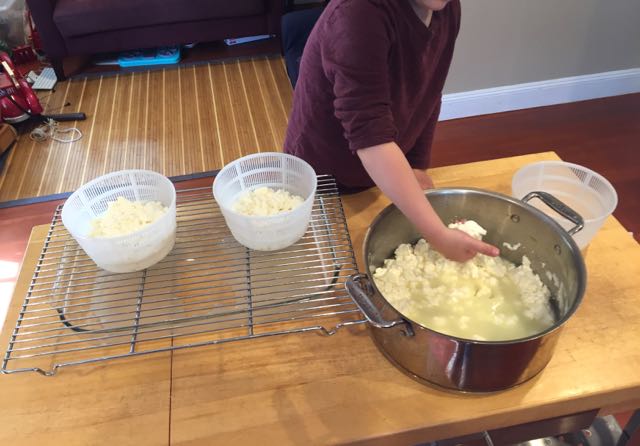

I have to note, though, that Wyatt has become more selective about the parts of cheesemaking he wants to do. This time, he decided he'd rather go outside to play than dissolve and pour in rennet, and he didn't really care about cutting the curd or stirring the pot of curds every 5 minutes for an hour. So I did those steps. The cheese forms, on the other hand, were new, so he definitely wanted to fill those. And he definitely wanted to remove the cheese from the forms and put them into their bath of whey. And because he knew how much fun the cheese stretching was, he had no problem setting aside Monday afternoon for stretching and shaping cheese.
We could have attempted to make tender mozzarella balls, but we decided it was much more fun to overwork the curd and make string cheese. So we made Oaxacan string cheese and Majdouli, a Middle Eastern string cheese that incorporates nigella seeds.
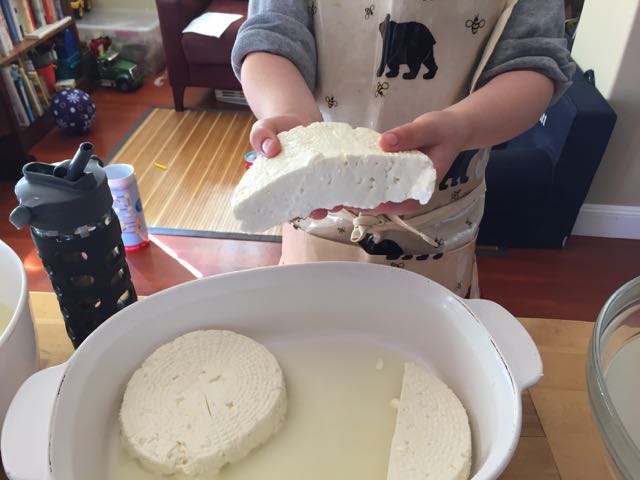
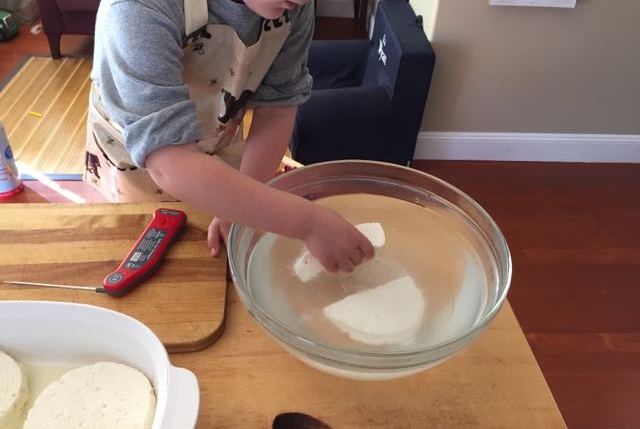
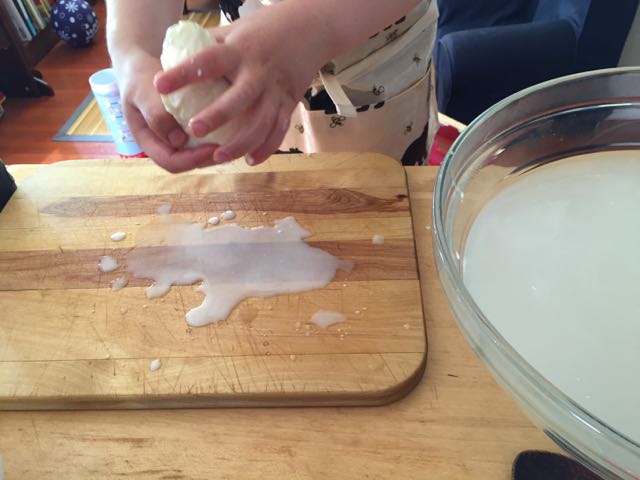
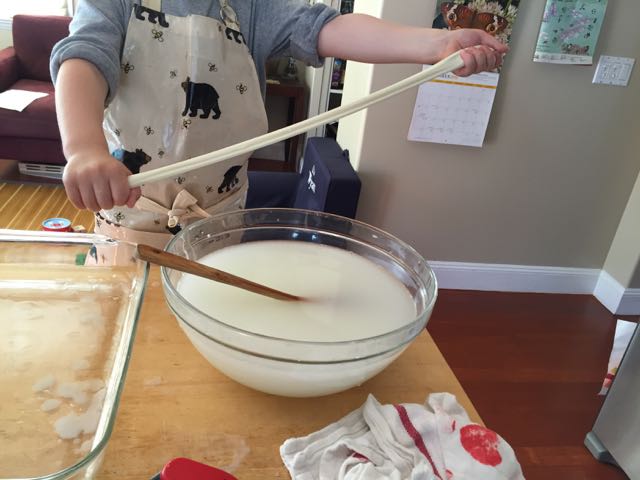
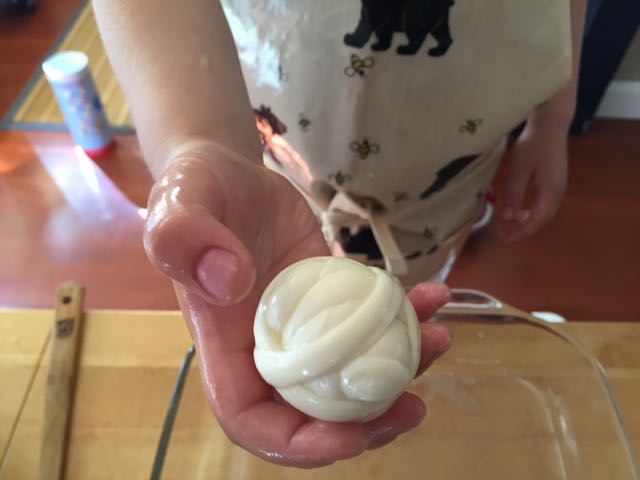
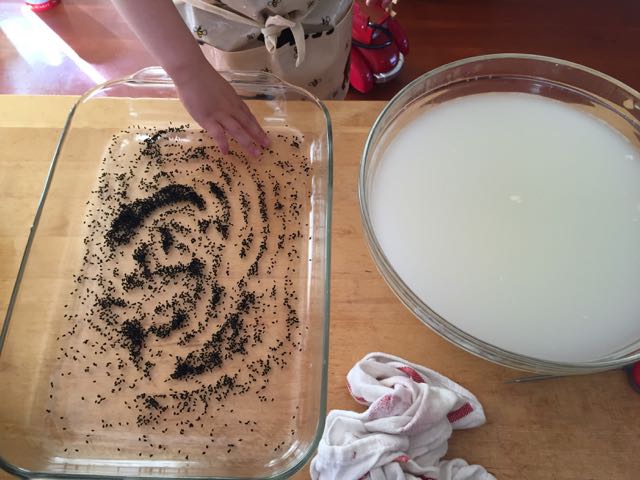


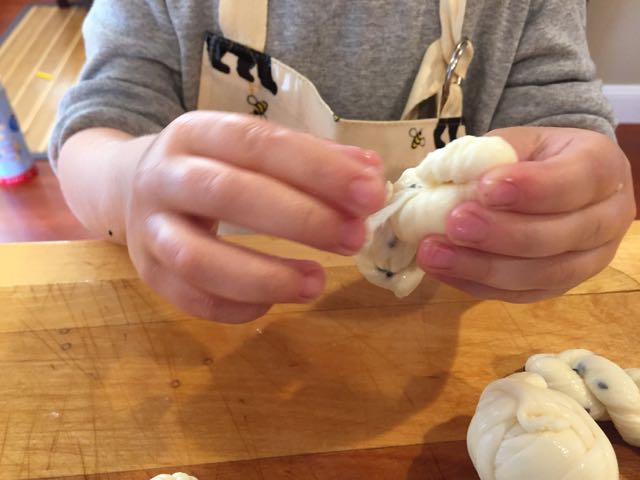
The flavor of the slow mozzarella is much, much better than the fast mozzarella. It's still mild, but it's more complex and less sweet. We ate some for dessert with apples and honey, and it was so good.
But the lessons for me from this mozzarella adventure are that I should heed the recommendations of my assistant and always use bottled water to dilute the rennet.

